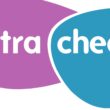New York-based Kate Ryder, whose pioneering Maven Clinic provides online health services to women and families, has raised $110m in funding, bringing its valuation to more than $1bn. More than that, the platform is proving to the male-dominated VC industry that women’s telehealth care can be a solid investment.
It’s pioneering work but, then, it is a third career for Ryder who was a journalist with The Economist in Singapore, New York, and London, and once also wrote for The New Yorker. In 2009, she helped former US Treasury Secretary Hank Paulson, write his memoirs about the banking crisis.
As a young mother, Ryder spotted the need for online help for people like her: “There’s a lot of research on the first 1,000 days of life, and if you just invest in that period – up to age 2 – you can have a huge return on investment across the rest of the system because those children have better tools to go through life.”
Maven Clinic’s telehealth platform includes access to a network of providers, including fertility specialists, adoption coaches, doulas, lactation consultants, pediatricians and child care providers. Its membership network includes more than 2,000 doctors. Maven offers on-demand video appointments, texts, and instant access to prescriptions to any woman, anywhere.
It has been accessed by over 10m women and families to date, most paid-for by employers who are the principal providers of private healthcare insurance in the US. They are starting to love it. Just five months after Microsoft first offered Maven Clinic as a benefit for employees, no fewer than 2,300 have become regular users of the platform.
The 2014 launch was promoted by Ryder’s assertion that “Almost 80% of household healthcare decisions are made by women — women are most likely to take care of family members when they get sick and often guide how and when their children and families go to the doctor. However, the vast majority of digital health startups are founded – and run – by men”.
Since then, Maven has raised some $200m in funding from seasoned digital investors and also celebrities like Reese Witherspoon, Natalie Portman, Mindy Kaling, and Oprah Winfrey.
The company does not reveal current membership numbers. But the founder said membership had increased 400% during the pandemic: “Consumers understand telemedicine now because they had to rely on it during the pandemic. So we don’t need to try to describe why virtual care works. The provider community has embraced telemedicine in a way that they hadn’t before.”
Maven has targeted female-family healthcare but Kate Ryder’s membership package of expert advice, peer networks, and content should inspire media people to consider how this could be applied in other markets: perhaps in law, education, finance – and elsewhere in healthcare. Just think.




